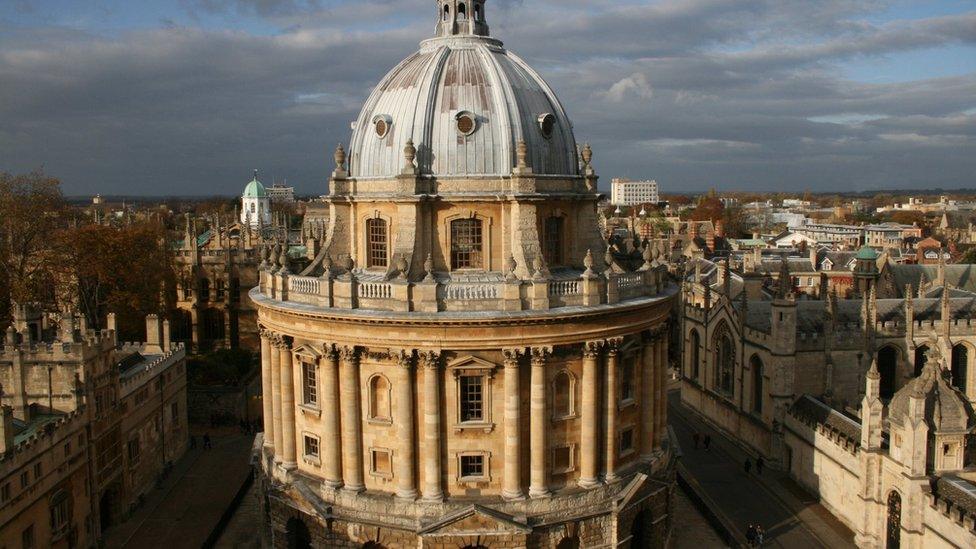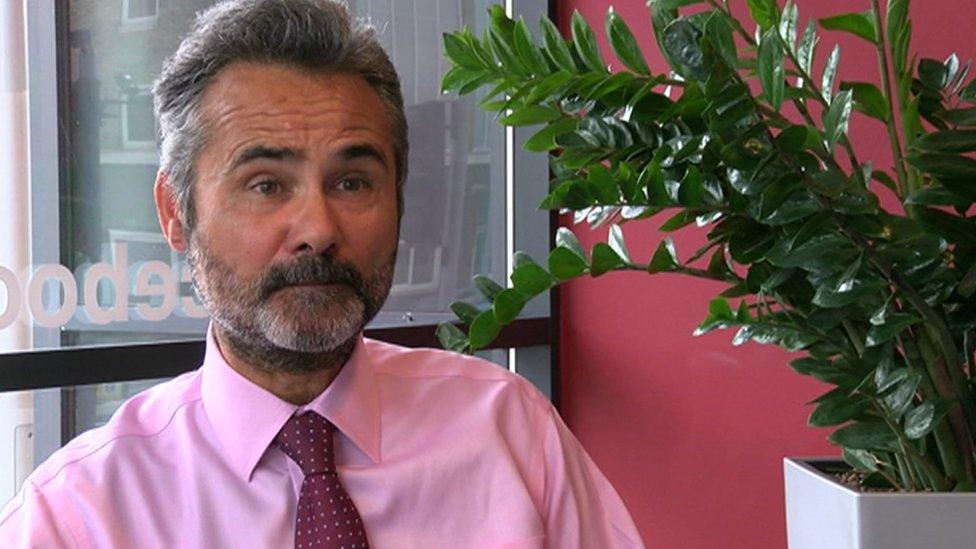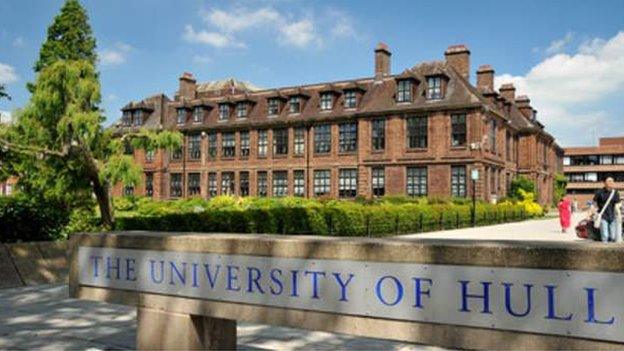University finances face £17.5bn pensions squeeze
- Published

Universities face a new blow to their finances after the main pension fund deficit soared to £17.5bn.
The Universities Superannuation Scheme now has the largest pensions deficit of any UK pension fund after it increased by £9bn last year.
One expert said student fees may have to rise or be diverted from teaching.
But a USS spokesperson said the pensions were "secure, backed by a solid investment portfolio and the strength of sponsoring employers."
The USS funds pensions for academics who are mostly based in the pre-1992 universities, and has more than 390,000 members.
'Less money for teaching'
To ensure the fund remains solvent, the USS will have to submit a plan to the pensions regulator to reduce the size of the deficit, which was first reported in The Financial Times, external.
That could mean cutting the value of future pay-outs, increasing staff contributions or raising employer contributions, putting pressure on university budgets.
John Ralfe, an independent pensions consultant, said: "It seems inconceivable to me that student fees will not have to be diverted into plugging the pension deficit.
"That means either they go up or there is a smaller amount of money that can be dedicated to teaching and research. And obviously the student fees that are paid are for teaching and research, not to pay for the folly of USS betting on equities over the last few years."
The pensions deficit has grown rapidly since 2014, when benefits were reduced for new entrants to plug a £5,3bn deficit.

John Ralfe, independent pensions consultant, says tuition fees could be used to plug the pensions gap
Mr Ralfe said poor management of the fund was to blame.
"I think the root cause of this is the USS trustees going down to the casino and betting the money that they had been given by universities, betting it on [the stock market]," he said.
Lord Adonis, who helped increase university tuition fees to £3,000 as head of the Number 10 policy unit under Tony Blair, agreed there were "big questions" over the schemes management and it was time for vice chancellors to "get their acts together".
However, he said there was "no reason" for students to fear another rise in tuition fees to cover the costs.
'Backed by universities'
A spokesperson for the USS said investments had outperformed their five-year target by more than £1bn, but the deficit was caused by liabilities growing even more quickly.
"USS pensions are secure, backed by a solid investment portfolio and the strength of sponsoring employers," the spokesperson said.
The USS said that it was backed by universities which had net assets of more than £50bn.
University lecturers balloted for strikes in 2011 and 2014, when earlier changes were made to pensions.
Sally Hunt, general secretary of the University and College Union, said: "Recent years have not been good ones for members of USS as twice they have seen the value of their pensions reduced and been asked to pay more for the privilege."
- Published26 April 2017
